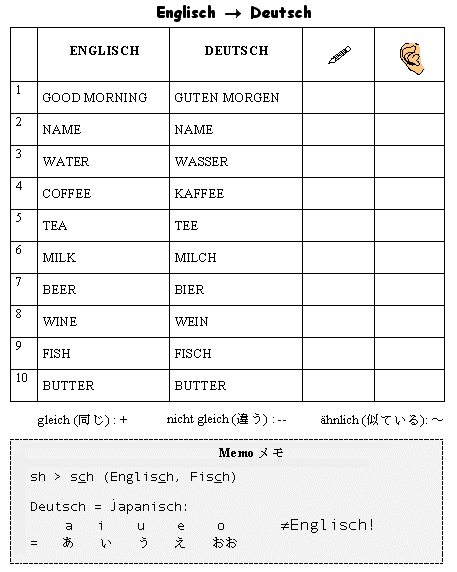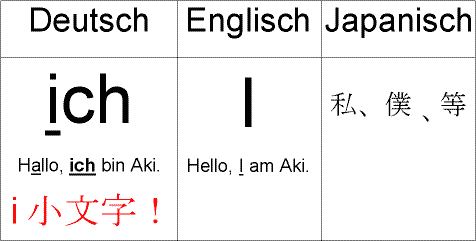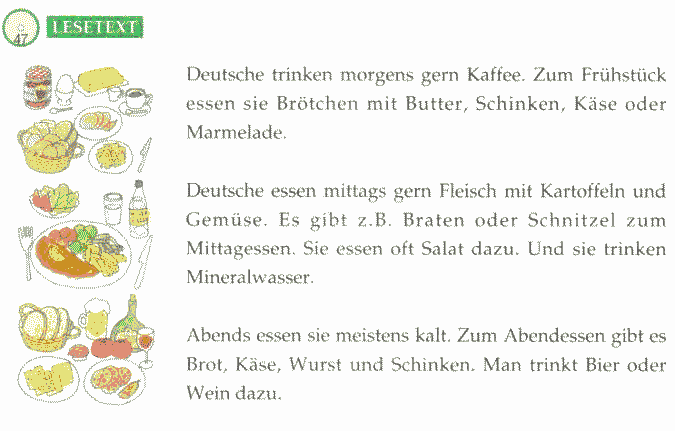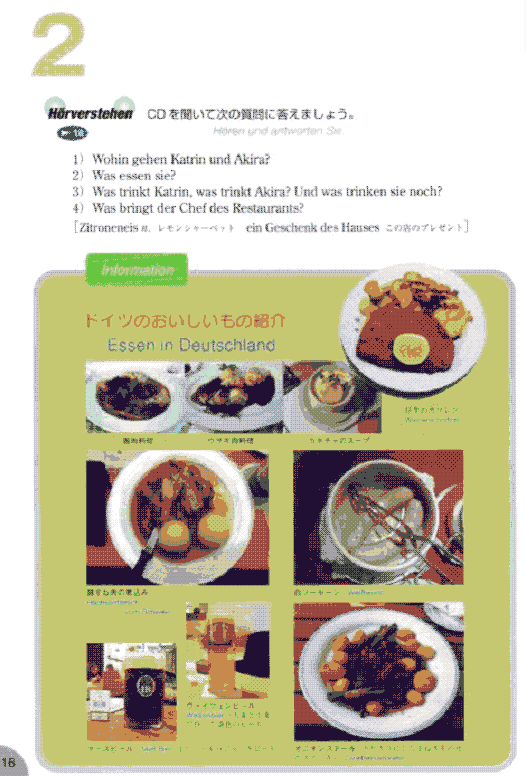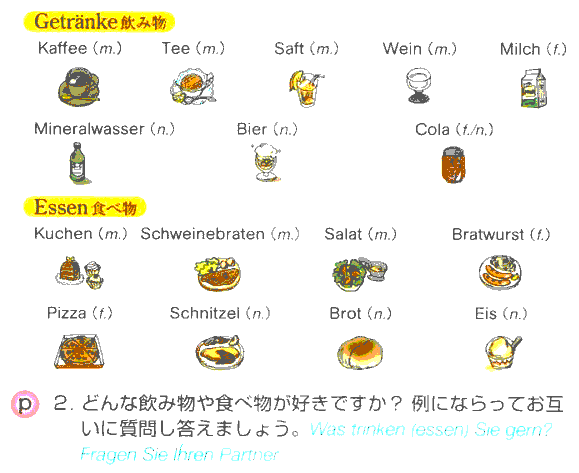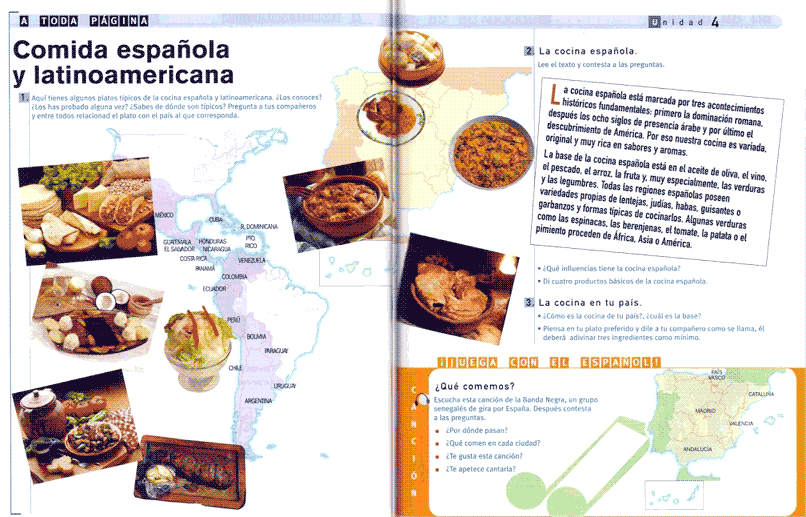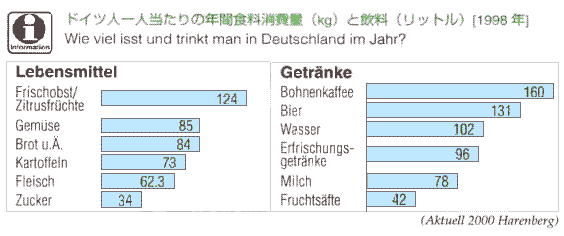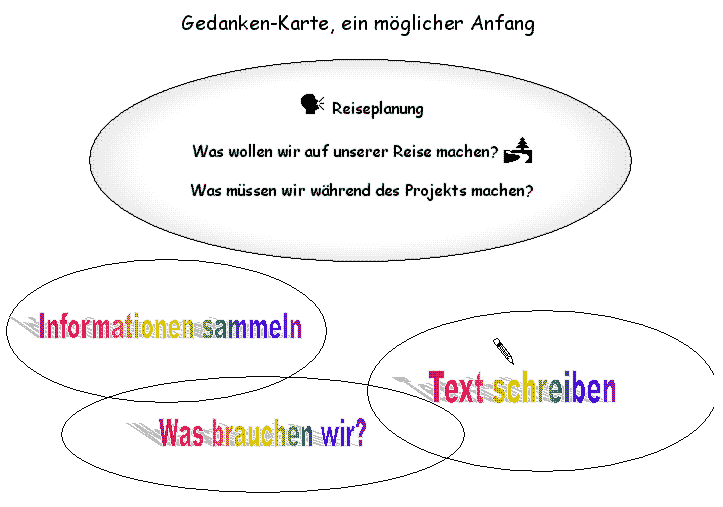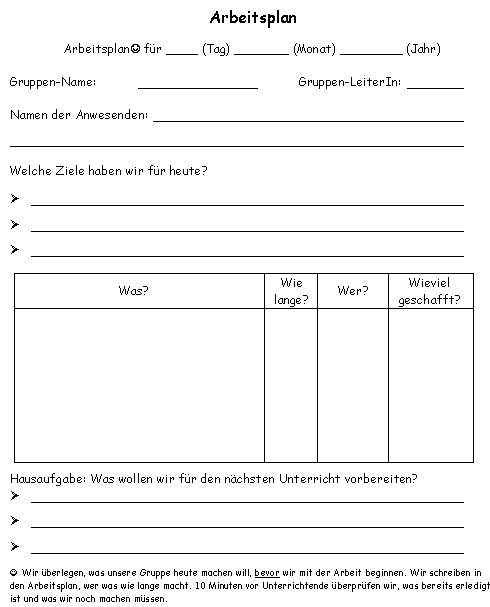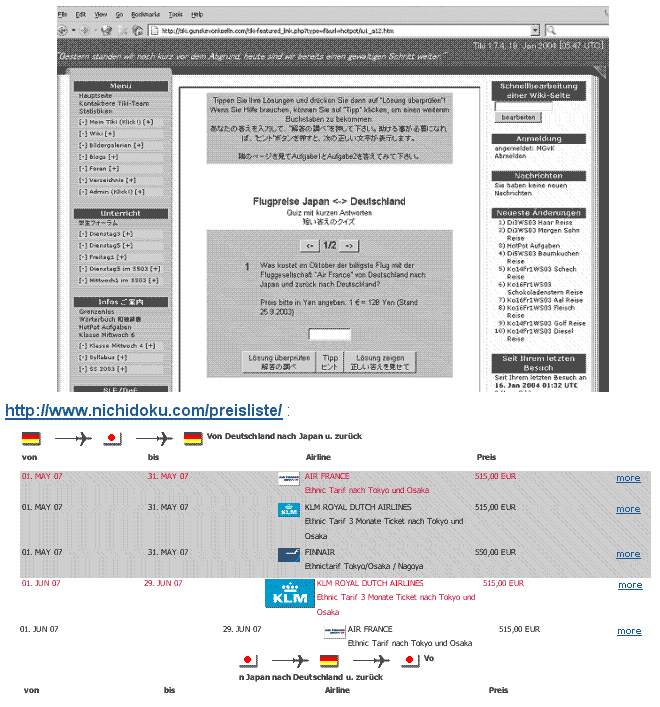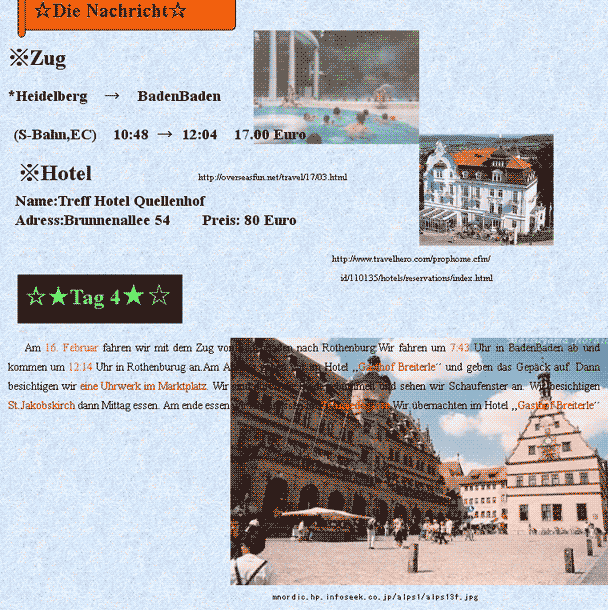May. 12 - 13, 2007. Sendai, Japan: Tohoku Bunka Gakuen University. (pp. 21 - 41)
Learning more than English as a foreign language:
by Martina Gunske von Kölln (Fukushima University)
|
|
Schlüsselwörter: : Tertiärsprachen, OLE, autonomes Lernen, Textbuchanalyse, DaF, "task-based language learning" This paper discusses characteristics of teaching and learning Other Languages beyond English (OLE), which is distinct from English as a first foreign language. In many countries in Asia nearly all of the so called "OLE" learners have already learned English, so the knowledge of English can both disturb and aide the learning of subsequent languages. In the first part of this paper the author presents some examples of ways to teach a second or subsequent foreign language like German, especially in a Japanese university context. In the second part the author considers reasons for learning foreign languages besides English. Keywords: : "3+" language learning, autonomous learning, task-based language learning, textbook analysis, DaF (German as a foreign language), OLE 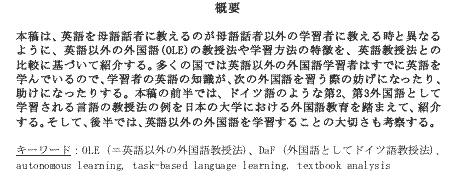 |
